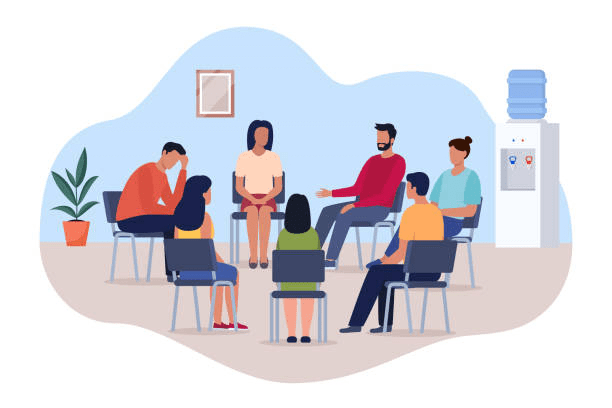Group Therapy For Mental Health: Building a Supportive Network
Support groups are integral for psychological and mental well-being as they provide a sense of belonging, reducing feelings of isolation. Through validation, members find understanding and empathy, fostering a supportive environment. Counseling support groups facilitate knowledge sharing, enabling individuals to exchange coping strategies and resources. Online support groups for therapy provide an accessible platform for members to connect, share experiences, and offer mutual support.
Through validation, members find understanding and empathy, fostering a supportive environment. These groups facilitate knowledge sharing, enabling individuals to exchange coping strategies and resources. Peer support groups for counseling play a crucial role in reducing stigma by fostering open discussions that challenge misconceptions. Through validation, members find understanding and empathy, fostering a supportive environment.

Mind Help Support Groups: Fostering Mental Well-being Together
Support groups and group therapies for mental health organized by Mind Help play a pivotal role in nurturing psychological and mental health. Here’s how:
Sense of Belonging: Mind Help support groups create a welcoming environment through community counseling groups where individuals find a sense of belonging and community. Peer support groups helps individuals realize they are not alone in their struggle, thus participants can alleviate feelings of isolation and loneliness.
Validation and Understanding: Interacting with like-minded individuals validates feelings and experiences, fostering empathy and understanding. Participants can freely share thoughts. and emotions without fear of judgment, creating a safe and supportive space.
Sharing Knowledge and Resources: Mind Help support groups serve as platforms for sharing coping strategies, resources, and treatment options. Members can learn from each other’s experiences, gaining valuable insights into effective coping mechanisms.
Emotional Support: Participants receive emotional support, encouragement, and compassion from fellow members or supportive peer groups, who understand their struggles. Expressing emotions freely and receiving validation fosters a sense of support and understanding.
Empowerment and Hope: Being part of a Mind Help support group empowers individuals to take control of their mental health journey. Sharing success stories and witnessing others’ progress instills hope and motivation for recovery and personal growth.
Reduced Stigma: Mind Help support groups contribute to reducing the stigma surrounding mental health by fostering open and honest discussions. By challenging misconceptions and stereotypes, participants in the community counseling groups promote greater awareness and acceptance within the community.



